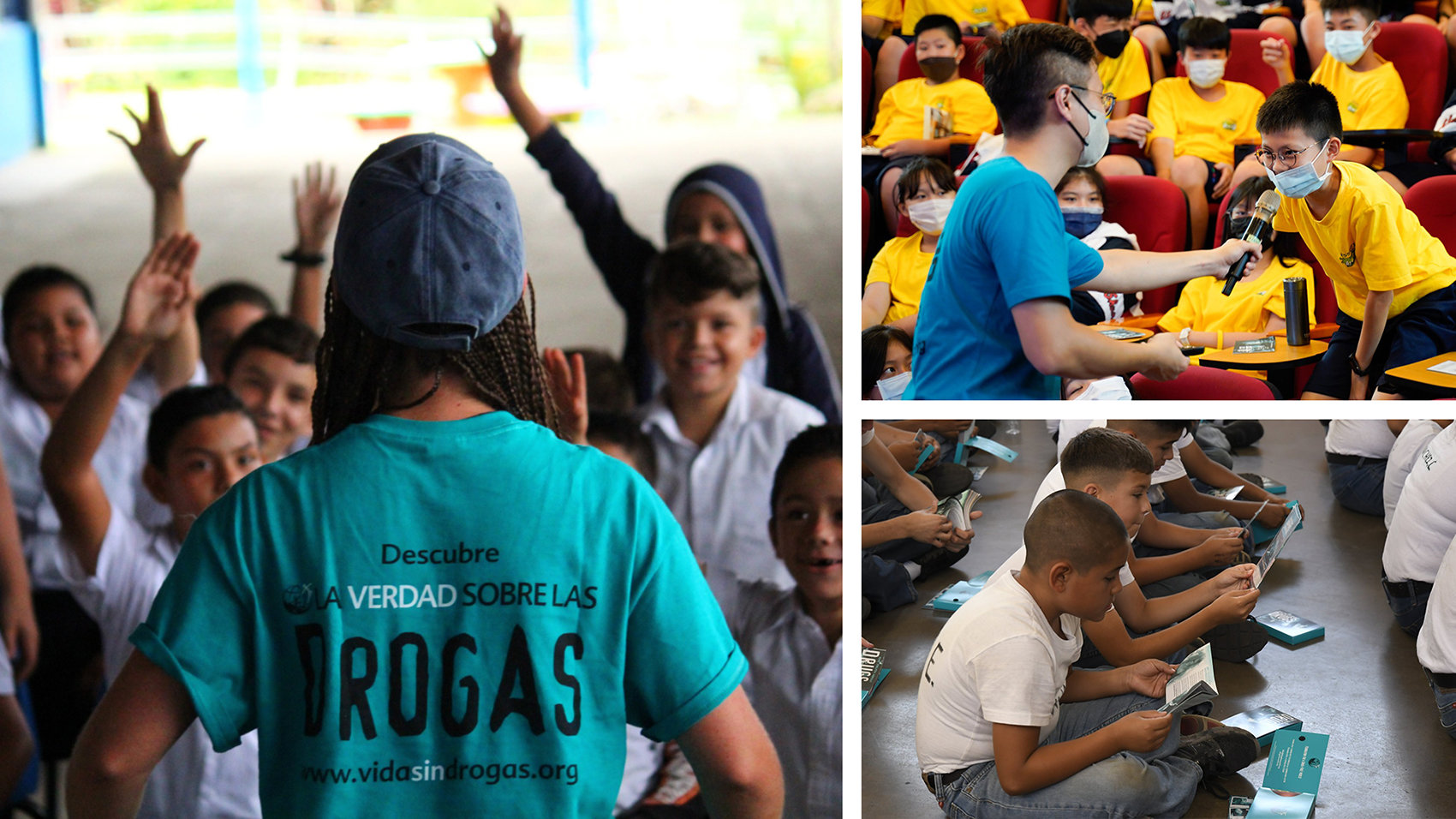The Drug Epidemic in Review
The rapid expansion in the drug trade, trivialization of marijuana, spread of deadly synthetic drugs and other drug-related scourges present new challenges to public health. But what can you do?

The world is changing. Humanity has suffered through a global pandemic and shutdown that isolated people in their homes. Recreational drug use skyrocketed. Alcohol[1] and drug deaths, already rising in the United States, surged.[2]
According to the United Nations Office on Drugs and Crime (UNODC) World Drug Report 2022, around 284 million people age 15–64 used drugs worldwide in 2020, a dramatic 26 percent increase over the previous decade. Over 11 million people injected drugs.
Lighting up a joint or downing a marijuana edible is becoming an accepted part of mainstream culture. Per the UNODC’s 2022 report, cannabis legalization increased daily use, especially among young people. The National Institute on Drug Abuse in the United States reported marijuana and hallucinogen use among young adults reached an all-time high in 2021.[3]
Today’s cannabis is not your grandfather’s marijuana. It is much more potent than the substance consumed in the “flower power” era (’60s and ’70s). In 1995, the percentage of THC in cannabis samples seized and analyzed by the Drug Enforcement Administration was 3.96 percent. By 2018 and 2019, the percentage spiked to 15.67 percent.
Increased use and higher potency are linked to hospitalizations, mental disorders and suicides. One study revealed emergency room visits and hospitalizations were 22 percent higher among cannabis users than nonusers.
While a person is unlikely to die from marijuana intoxication alone, officials in Vermont and Connecticut issued warnings in 2022 that fentanyl-laced marijuana was causing overdoses across their states.[4]
In the United States, it is estimated that 107,000 people died from drugs in 2021, an increase from 92,000 in the prior year. And most of the drug-related deaths involved the synthetic opioid fentanyl, followed by psychostimulants like methamphetamine, cocaine and prescription opioids.[5] In Europe, heroin and other opioids were responsible for 74 percent of overdose fatalities.
Internationally, seizure data suggests that both cocaine and methamphetamine trafficking are expanding beyond their usual markets. The UNODC World Drug Report 2022 urges governments, civil society and all stakeholders to take action.
So what can you do?
Executive Director of the Foundation for a Drug-Free World Jessica Hochman states, “The only solution is to educate youth, so they don’t start taking drugs in the first place. Empower youth with confidence that they are doing the right thing in not taking drugs, period.”
Start your own Foundation for a Drug-Free World chapter in your area, bring the truth about drugs to future generations and save lives.
“Many parents and teachers are discouraged and do not know how to prevent children from falling into the trap of drugs. Guiding persons toward the solution is truly rewarding. There’s no better feeling than helping others,” says one of the foundation’s volunteers.
“Volunteering for the Foundation for a Drug-Free World has given me the tools to truly educate my kids on the dangers of drugs,” shares a volunteer from the United States. “Fifteen years later, all of them are 100 percent drug-free! The reason I decided to volunteer was not to only make sure my children never do drugs, but to also make sure the kids of my country never start taking drugs. By using the tools provided by the Foundation for a Drug-Free World, I am now able to educate youth on the true dangers of drugs. This education results in them never wanting to even try them.”
Want to make a difference? Start your group at drugfreeworld.org/getinvolved.
CBS New York: Alcohol-related deaths skyrocketed during pandemic
United Nations Office on Drugs and Crime: (UNODC) World Drug Report 2022
National Institute on Drug Abuse: Marijuana and hallucinogen use among young adults reached all-time high in 2021
Additions.com: Marijuana Laced with Fentanyl Is Causing Fatal Overdoses
National Institute on Drug Abuse: Drug Overdose Death Rates





